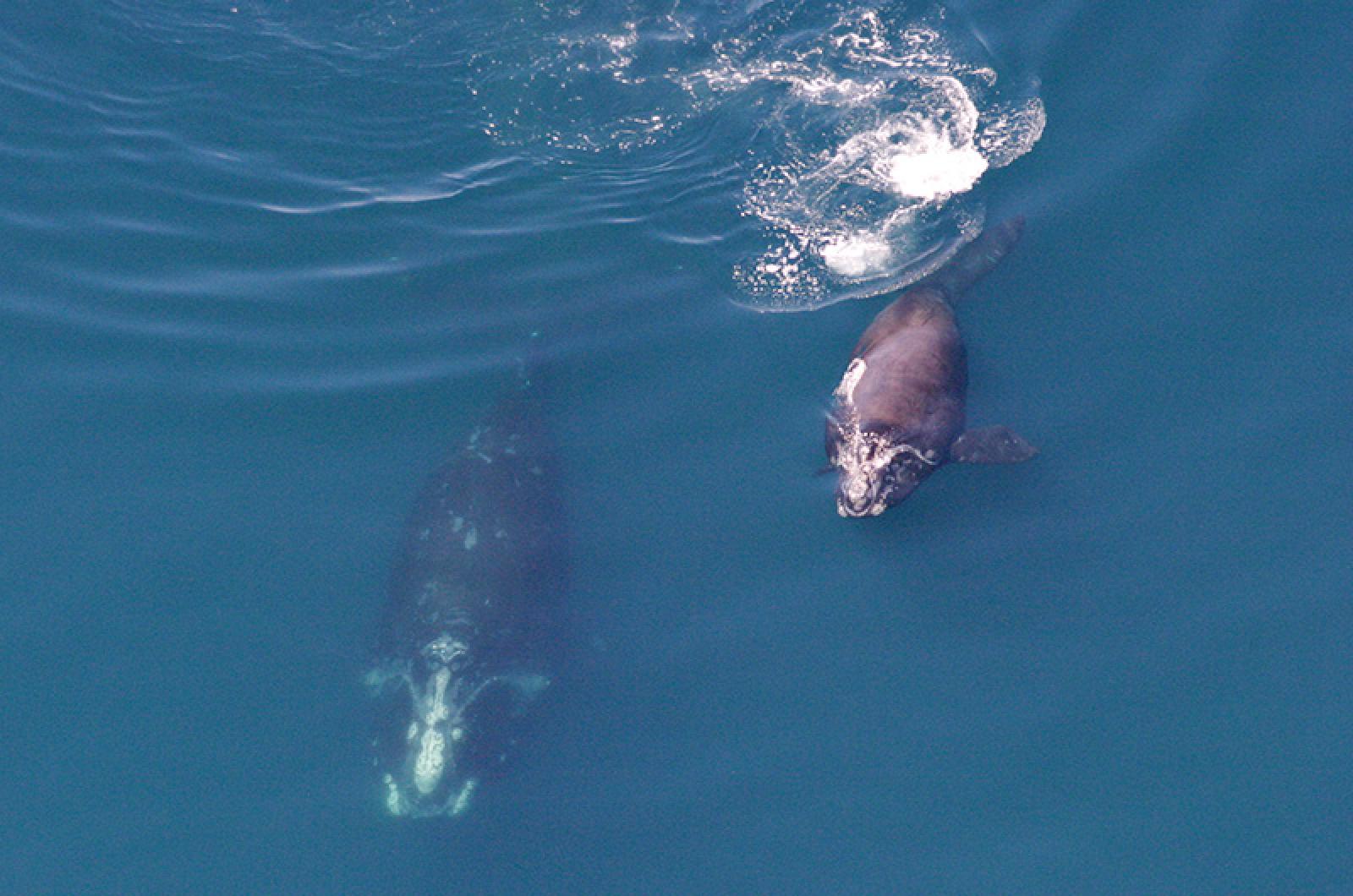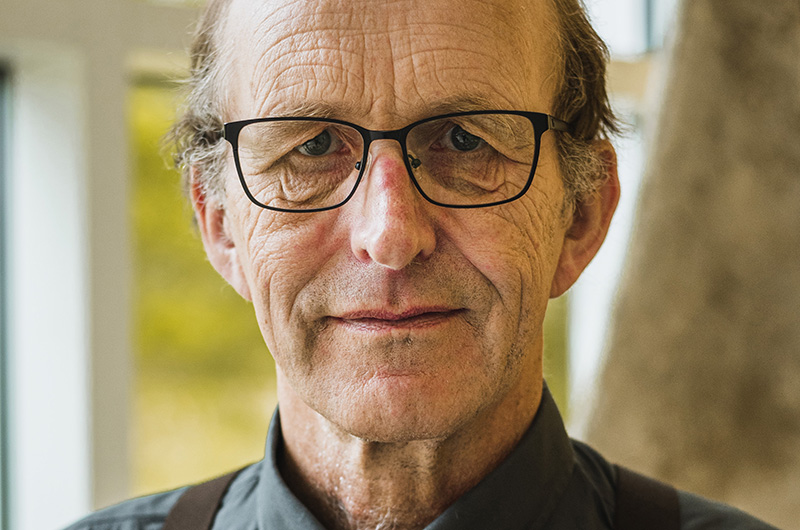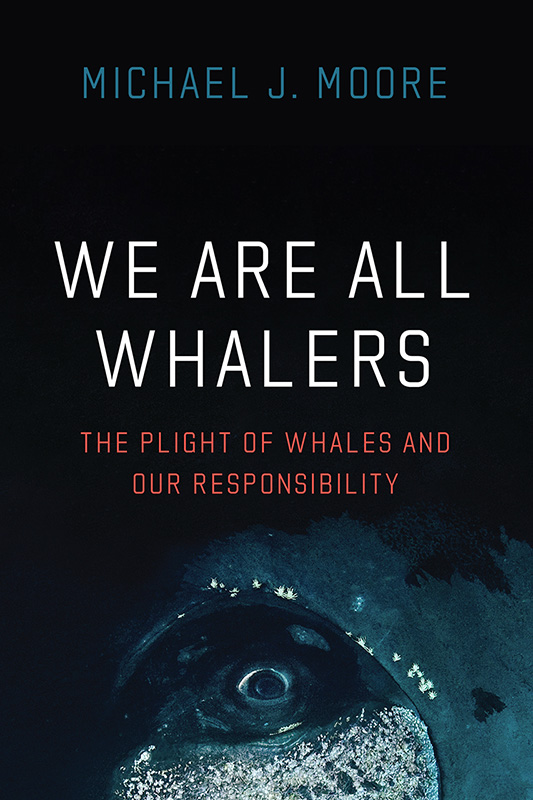The North Atlantic right whale is among the most endangered whale species on the planet, with a 2020 census putting the population at 366 whales. Woods Hole Oceanographic Institution marine mammal center director Michael Moore knows that. His contemporaries know that. Now Mr. Moore wants to make sure laypeople and fishermen understand how quickly the species is headed toward extinction.
“One’s commitment and expectation is to write scientific papers,” Mr. Moore said in a phone interview with the Gazette. “The frustration I felt in doing that... I didn’t feel that I was necessarily communicating that to the people I wanted to.”
And so Mr. Moore wrote a book on the subject entitled We Are All Whalers, The Plight of Whales and Our Responsibility published in November by The University of Chicago Press. The book details the plight of whales in the frame of a memoir, beginning as a child growing up in England.
Mr. Moore’s parents were both in the medical profession, his father a doctor and his mother a maternity nurse. His father also suffered from depression, an experience that Mr. Moore says in his book played a role in his identification with the suffering of all creatures.
“Unseen trauma and suffering were things I had come to know as a child,” he writes. “I was the youngest of four. My parents were English teenagers in the 1930s, and in the 1940s my mother was a maternity nurse in central London during the World War II bombing Blitz, my father training to be a medical doctor.”
As an undergraduate at Cambridge, Mr. Moore studied to become a veterinarian. While at school he spent a spent the summer of 1979 working for biologist Hal Whitehead in Newfoundland. Through Mr. Whitehead, Mr. Moore’s eyes were opened to “the majesty of large, powerful whales,” he writes.
During that summer he also witnessed his first whale entanglement with fishing gear, one of the main causes of death for whales these days.
“We watched in dismay as a humpback whale got entangled in the anchor line of a trap,” he writes. “After about twenty minutes of strenuous activity, it was able to free itself. There was another whale nearby, and we speculated as to whether it was trying to help the entangled whale get free. This was the first time I had seen an entangled whale. I had no idea then how many more I would see in the future, both alive and dead.”
Mr. Moore’s career has taken him all over the world learning about the plight of whales, with his base of operations at the Woods Hole Oceanographic Institution. Over the decades he has studied whales both alive and dead, tracking their migratory routes and performing autopsies trying to decipher causes of death.
“Why they were dead on the beach became paramount,” he said. “I went off into the rabbit hole of diagnostic large whale trauma … and I’ve been there ever since, because the problem wasn’t going away, it was getting worse.”
But Mr. Moore does not simply point fingers at the fishing and lobster industries. Rather, as the title of his book implies, he feels the problem is everyone. By way of modern fishing and shipping practices, he figures even those who never leave the shore become the “assumptive whaler” enabling destruction with their support of industries that directly or indirectly kill whales.
“It brings into question the infallibility of western attitudes,” Mr. More said.
But Mr. Moore takes no pleasure in the thought of ruining the fishing industry. Rather, he seeks to have the industry change, and advocates for more sustainable fishing practices.
“I think it can all be modulated and adjusted,” he said.
While sustainable practices such as reducing the amount of rope used for lobster fishing, which Mr. Moore cites as the reason for many right whale deaths, are less efficient and likely to cause the delicacy to cost more at the market, he hopes people see the immediacy of the right whale’s plight.
“It’s all doable,” he said. “How badly do we want it is the question.”
“What if we lose the North Atlantic right whale species?” he writes near the end of his book. “It would be another nail in the coffin of the human species. If we continue to destroy biodiversity, what kind of a world will be left for us to survive in?”
Now, it’s about getting the message out to wider audiences through his new book.
“I felt honor-bound to share what I know about the species,” Mr. Moore said. “It comes down to what do we really care about?”









Comments (2)
Comments
Comment policy »